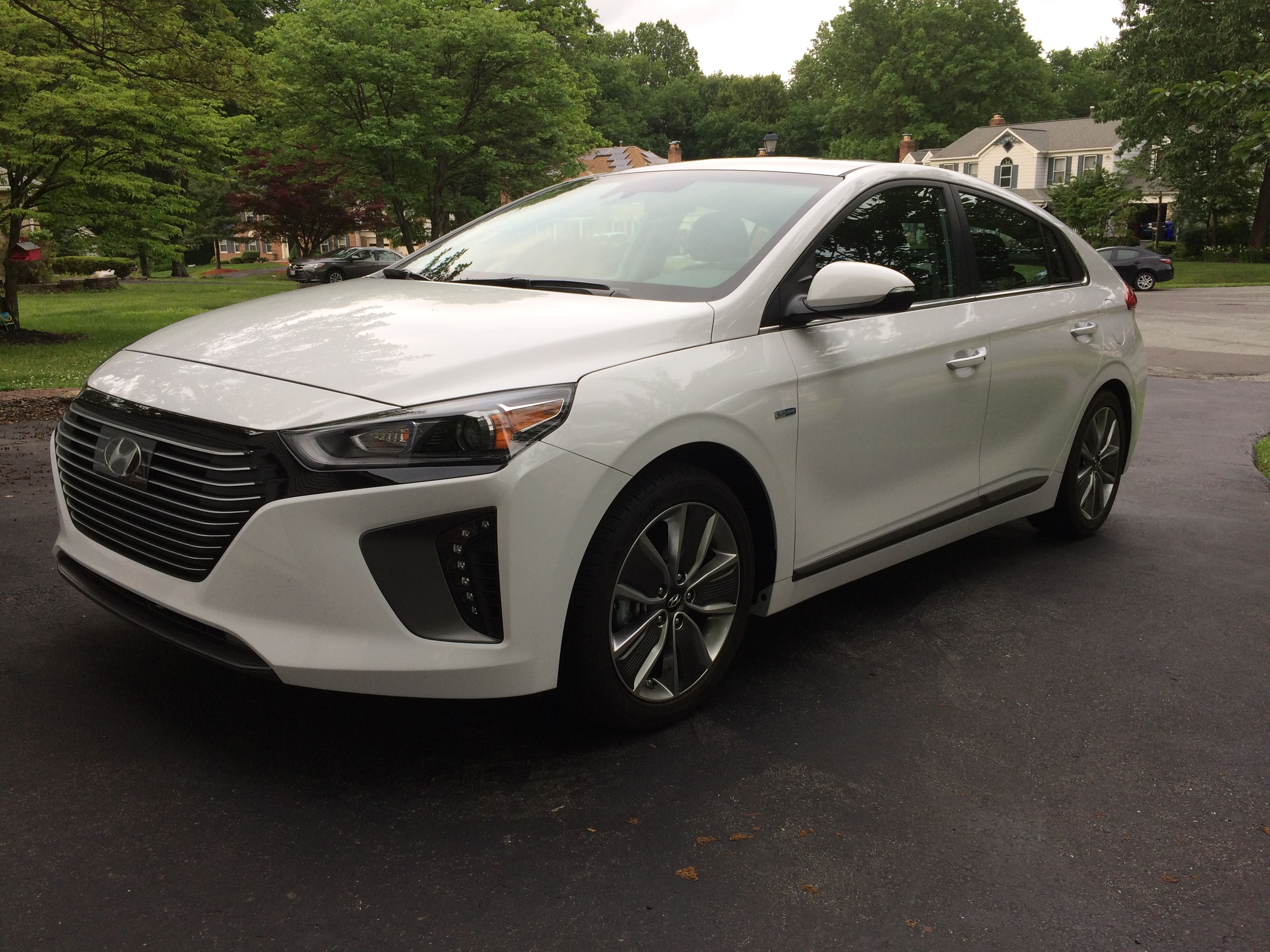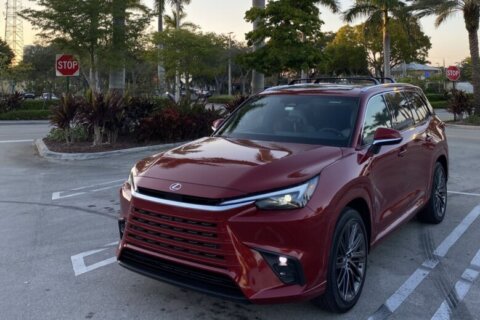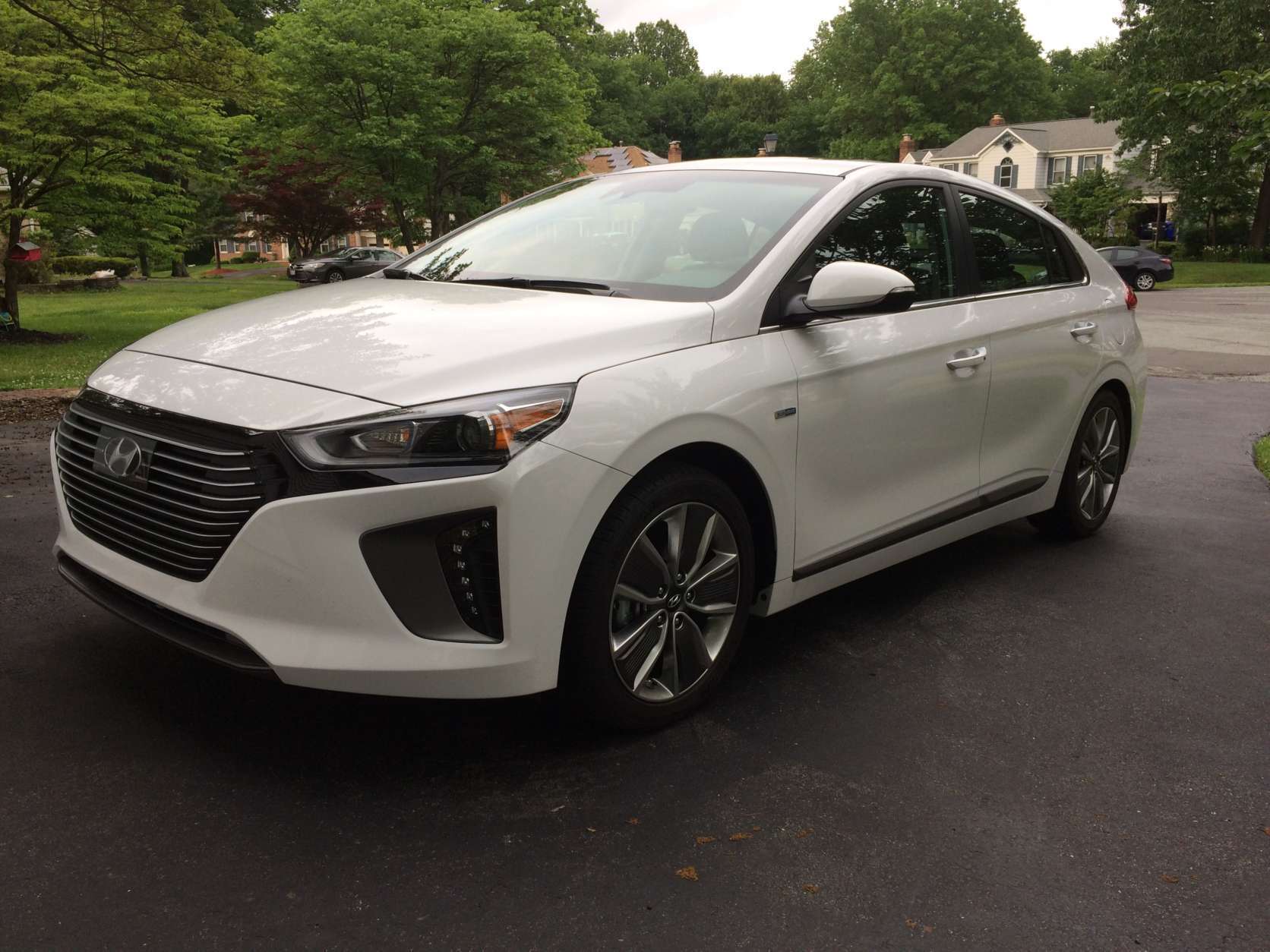
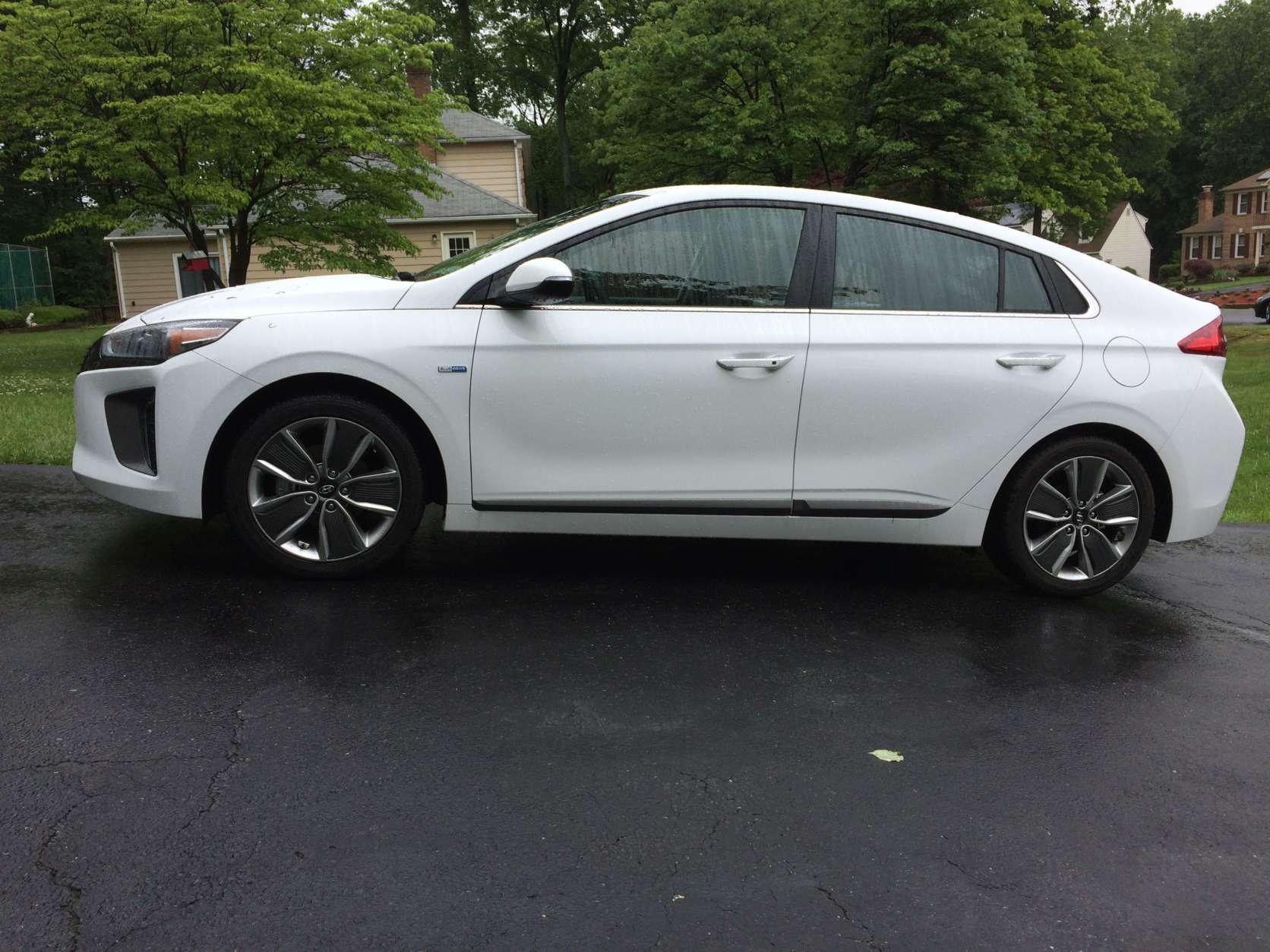
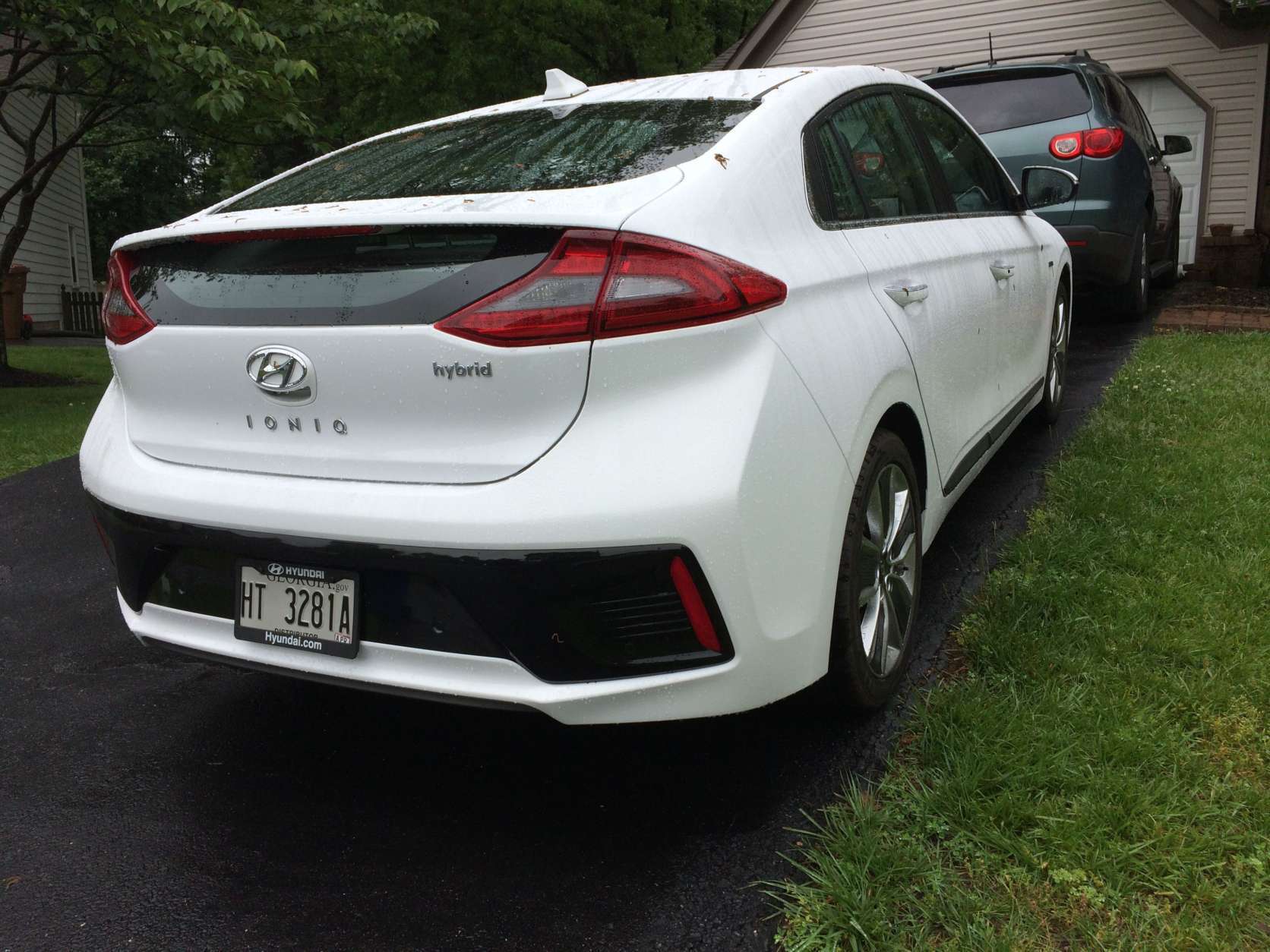
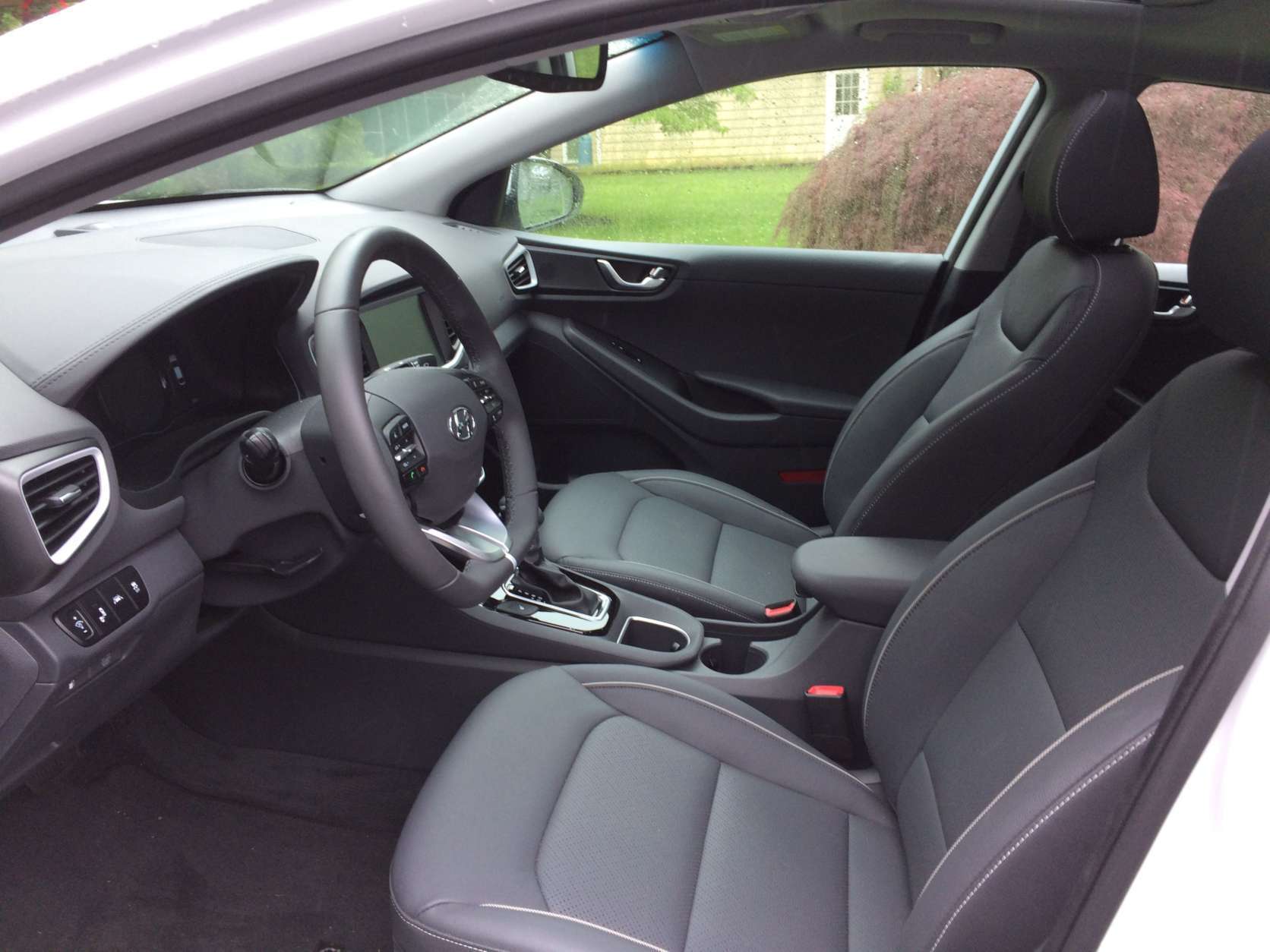
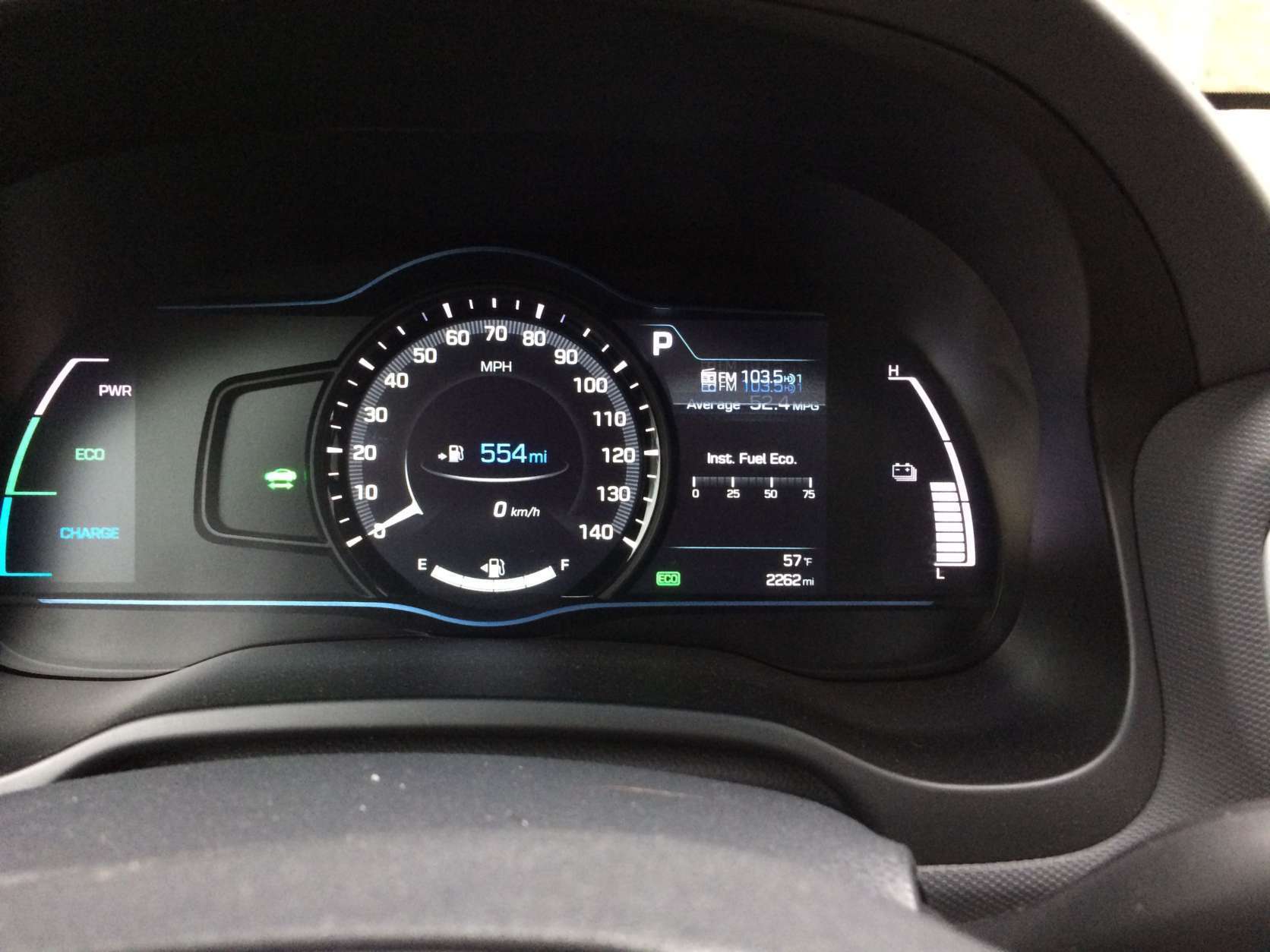
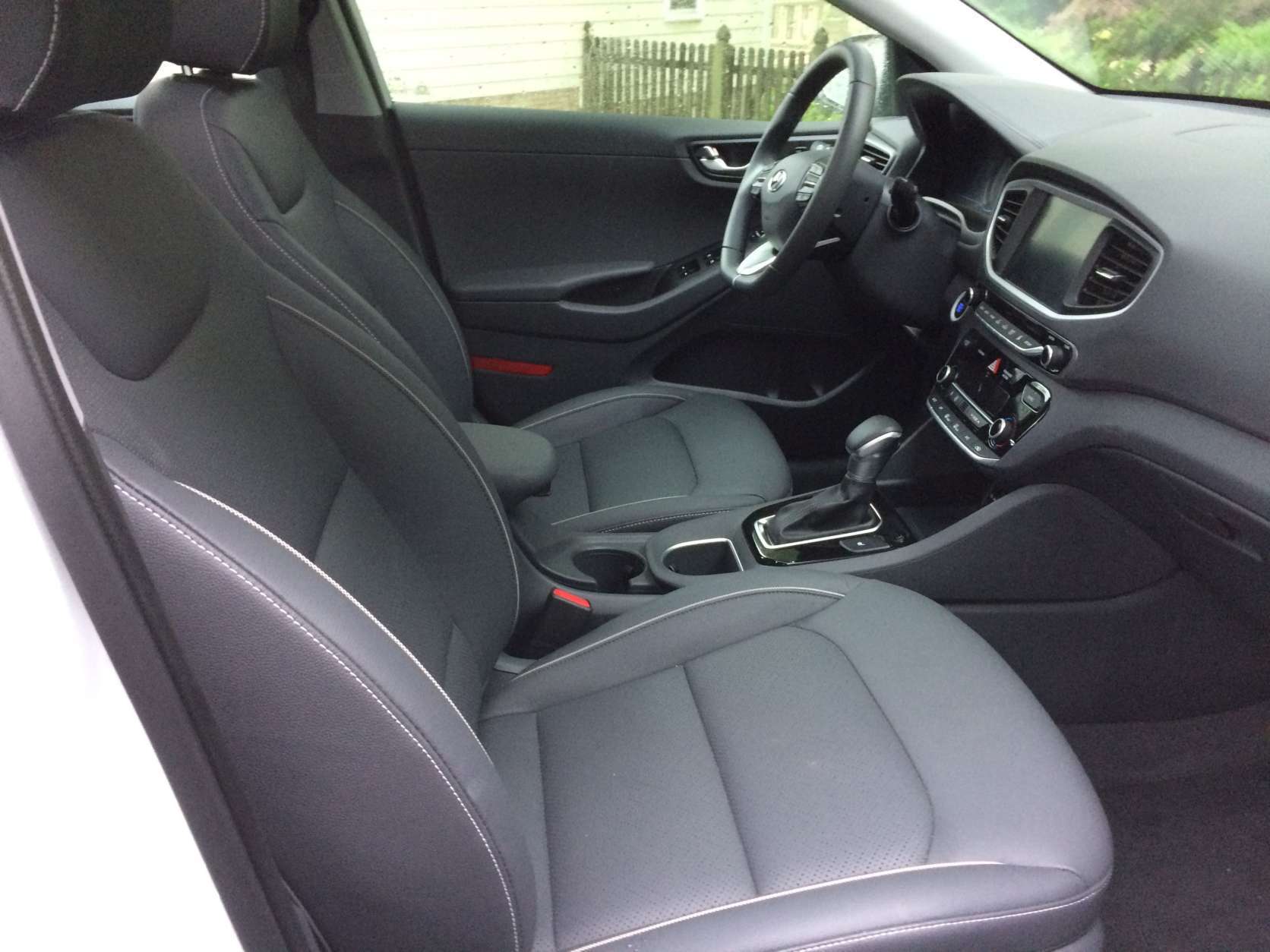
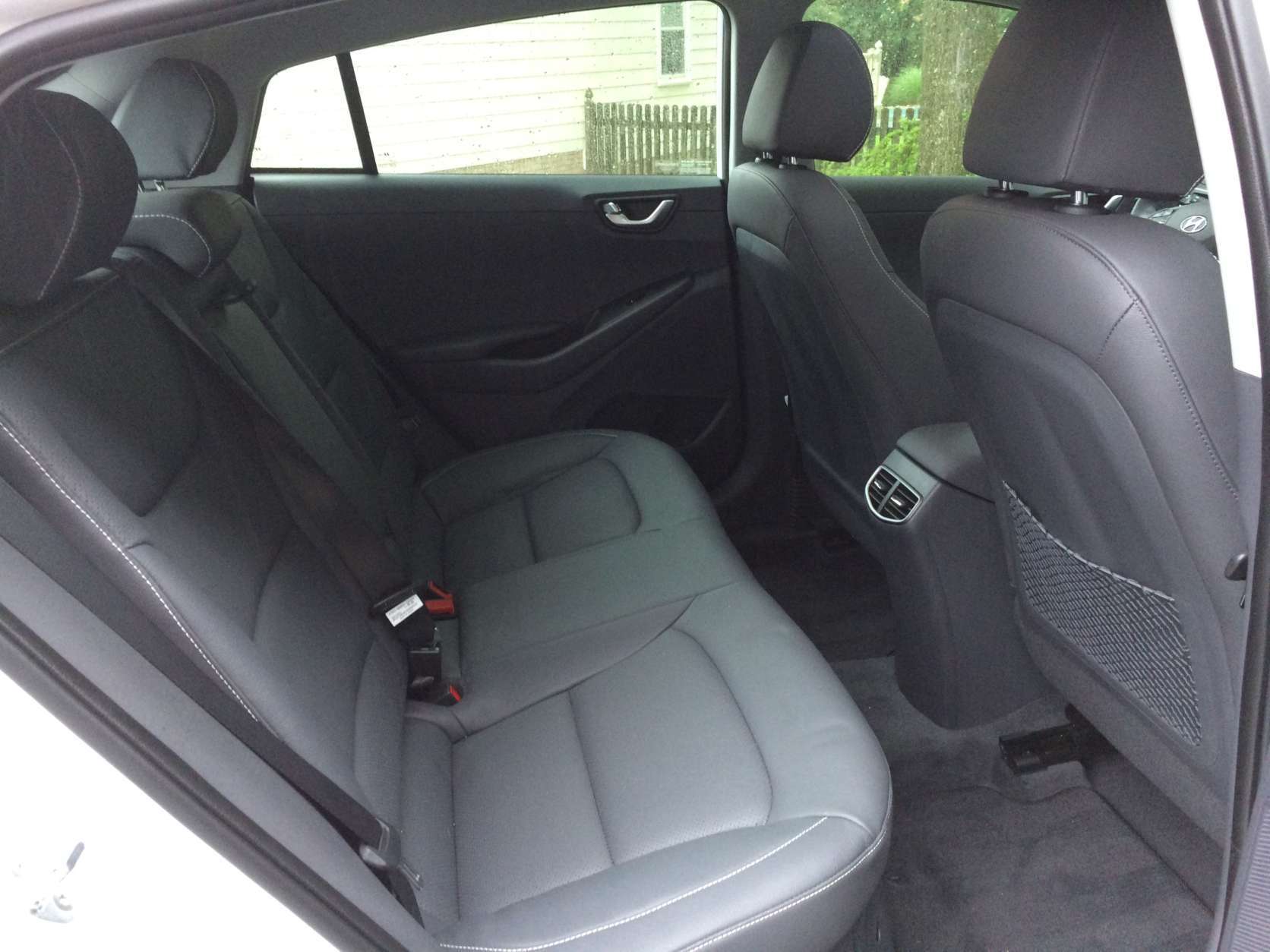




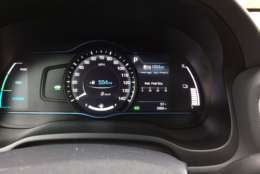



WASHINGTON — If you haven’t been paying attention to Hyundai lately, you are missing out on a car company that’s trying to enter just about every category in the market. They are becoming a force in the market, offering vehicles with high content at competitive prices. Now they are moving into the serious mpg club with hybrids, plug-in hybrids and all-electric with the new Ioniq five-door hatch.
This time we look at the hybrid version of the Ioniq. It’s the most cost effective with prices starting around $22,500, an easy pill to swallow for great mpg. The fuel economy depends on the trim level you choose. You can see about 58 mpg for an entry level version. My fully loaded $31,460 Limited model drops to 55 mpg but that’s still 540 miles of driving on one tank of gas.
Where this car differs from the competition is the drive. While the Ioniq is no sports car, it is slightly more fun in the corners; the tires do like to announce their displeasure at spirited corners, however. There is a six-speed automatic instead of the usual CVT automatic in most hybrids, so it’s more pleasant with less drone. Power is decent, with about 139 horsepower between the gas and electric motor. However, to use the power you need to choose the sport mode or it will feel sluggish when accelerating in the default ECO mode.
The cabin is more normal than futuristic, and for some that’s a big selling point. The interior looks more like a Sonata, Hyundai’s midsize sedan, with heated leather seats that prove good for the long haul. The seat bottoms are a little flat, allowing some sliding around some corners. Those sitting in the back do OK for the compact size, but anyone 6 feet or taller will find the headroom tight. Storage space is good for a small car. The rear hatch allows for bulky items but the floor isn’t as wide as a normal car would be.
I noticed more road noise and it’s loud at times, depending on the road surface. It’s easy to work the radio, climate controls and the NAV system thanks to a large 8-inch touch screen with buttons and knobs. The Infinity premium audio system sounds good and there is even wireless charging for compatible phones. Android Auto and Apple CarPlay are available for more phone integration to the dash.
On the outside, the Ioniq Hybrid looks more like a typical hybrid, it’s just toned down when compared to the competition. The front end looks more aerodynamic with a more swept back style and headlights that seem to wrap around the front to the side of the car. It has more of a regular car look in the front half.
The blocky design of the wheels hint of the hybrid vehicle it is. The larger, 17-inch Eco-spoke wheels have some black inserts in half the wheel spokes for added aerodynamics. Only the rear end really screams hybrid with dramatic swept back styling. It has a split glass hatch with a large upper piece of glass and a much smaller window between the rear taillights.
The Hyundai Ioniq Hybrid Limited is a serious competitor to the established market. With impressive mpg and the features you come to find with other Hyundais, it’s a no-compromise version of a hybrid. Add a lifetime hybrid battery warranty or the 100,000 mile powertrain warranty and the Ioniq Hybrid is making the transition easy with a bit more peace of mind.
Mike Parris is a member of the Washington Automotive Press Association. The vehicles are provided by STI, FMI or Event Solutions for the purpose of this review.

